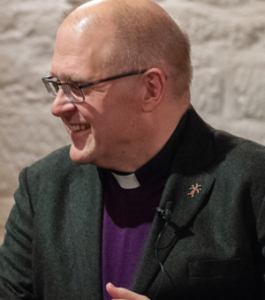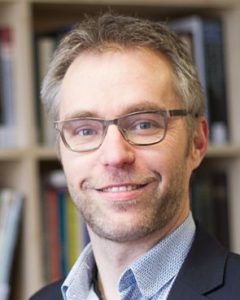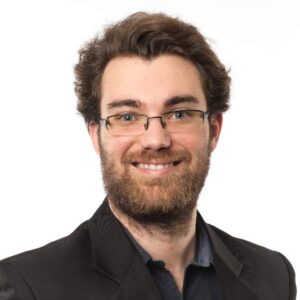 Andrew Teal is Chaplain, Fellow and Lecturer in Theology at Pembroke College
Andrew Teal is Chaplain, Fellow and Lecturer in Theology at Pembroke College
This post by Andrew Teal was first published by Sacristy Press. The UK edition of Inspiring Service was published by Sacristy Press in November 2020.
In November 2018 the work of over a year came to fruition in Oxford when a distinguished panel of global religious leaders, the former Archbishop of Canterbury, Rowan Williams, Elder Jeffrey R. Holland, Professor Frances Young, and Lord David Alton, under the direction of the chaplain of Pembroke College, Oxford, the Revd Dr Andrew Teal, shared their thoughts on how Christian faith goes hand-in-hand with Christian service. The International Center for Law and Religion Studies cooperated with several Oxford institutions to support the event, including Pembroke College, the Oxford Programme for the Foundations of Law and Constitutional Government, and the Centre for Theology and Modern European Thought (Paul Kerry, ICLRS Associate Director).
During 2018, events conspired to raise our awareness that many students who had hoped to engage with transformational projects aimed at the public good when they graduated were instead feeling hemmed-in into careers which paid well—to see-off student loans and debts accumulated at university. In conversation, there was also a recognition that though the musical lives of Oxford and Cambridge especially meant that college chapels, to a large degree, were somewhat inoculated from the widespread experience of diminishing numbers, impact and resources in many churches, there was sometimes a restriction to beautiful music rather than a more profound engagement with the life of faith. There were puzzlements voiced that there didn’t seem to be a direct connection between the quest for aesthetic excellence and plugging into the resources of belief.
(more…)
 Jelle Creemers coordinates the Institute for the Study of Freedom of Religion or Belief (ISFORB) at the Evangelische Theologische Faculteit, Leuven (Belgium) and is a postdoctoral research fellow of Research Foundation – Flanders (FWO-Vlaanderen).
Jelle Creemers coordinates the Institute for the Study of Freedom of Religion or Belief (ISFORB) at the Evangelische Theologische Faculteit, Leuven (Belgium) and is a postdoctoral research fellow of Research Foundation – Flanders (FWO-Vlaanderen).

